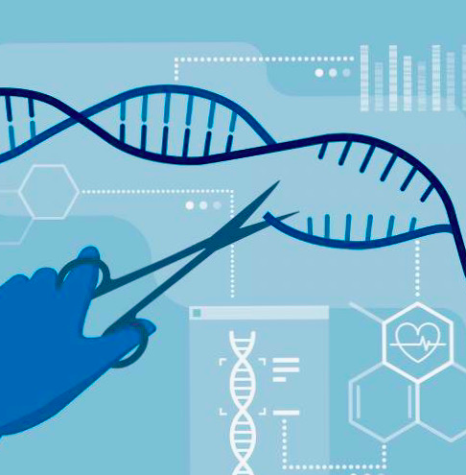Course Highlight: BIO 3350 — Animal Behavior
Ethology is the study of genetics, physiology, ecology and evolution of animal behavior with an emphasis on social behavior. Ethology can shed light on humans as research on animals continues to offer valuable perspective into the evolution and causes of individual, social and reproductive human actions.
This is one of many reasons why scientists study ethology. One of the related courses offered at Oakland University is Animal Behavior (BIO 3350), is taught by Dr. Sandra Troxell-Smith, Ph.D, special lecturer for the Department of Biological Sciences.
The motivation behind Dr. Troxell-Smith wanting to teach the course was simple: her love and passion for animals.
“I absolutely love the content,” she said. “I took an Animal Behavior lecture course myself during undergrad, and it completely changed my career path. While I had always loved animals, I never knew that there was a field entirely devoted to learning and understanding how animals think, perceive their environments and make decisions. I kept wanting to learn more, which led to internships and jobs at several different zoos, and eventually performing both zoo and field research for my PhD.
“I could easily talk about how incredible and sophisticated animals are for days and never get bored,” Troxell-Smith continued. “Fortunately for me, this is now my job, and I get to share the amazing world of animals with others.”
While she loves teaching students who are on animal-related career paths, she thinks anyone who has their own animals or who likes animals could benefit from taking this course and learning more about them.
“Animals are deeply ingrained into our everyday lives — from our pets at home, to service animals, to the annoying squirrels currently burying nuts in our front yards,” Troxell-Smith said. “Understanding why these creatures do what they do and gaining an appreciation for how complex they really are can help improve our relationships with animals in every facet of life.”
The lecture portion of the course — BIO 3350 — provides students insight into how the scientific process is applied to understanding animal behavior, allowing them to learn about interesting things animals do and why.
The laboratory portion of the course — BIO 3351 — focuses on students actively engaging in applying concepts and knowledge learned from the lecture portion. Students have the opportunity to gain first-hand experience with conducting various behavior-related research projects, ranging from observing animals at the zoo, to creating enrichment for the animals they care for, to understanding how complicated something as simple as finding food can be.
“It was a very friendly class where we learned about a lot of little details animals use for numerous reasons,” Alessandra Cappussi, a senior majoring in biology at OU, said. “Very informative, but a fun topic to study and observe.”
According to Troxell-Smith, each chapter covered in the lecture highlights a whole new set of fascinating animal abilities. Despite the variety of interesting topics covered in the lecture, she said her favorite part of the course is the lab portion, due to her passion for experiential learning.
“While it is truly interesting to learn about what scientists have already discovered about animals in the lecture portion, I think it is really exciting to get the opportunity to conduct your own research project from the ground up in the lab course,” she said. “We start from the very beginning of the scientific process, and each student gets to experience every level of the process — including presenting their work to others.”








